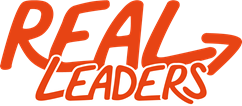25 May 2022
The 21st century SMART objective
When we hear the term SMART objective, our eyes roll, and the saying “here we go again” springs to mind. The notion of a SMART objective was created to focus on a person’s role back in the days of manufacturing and production. And while many of these valuable roles remain, many of us have never been near a manufacturing or production operation.
It’s SPECIFIC, MEASURABLE, ACHIEVABLE, REALISTIC and TIME BOUND if the acronym is followed. Yet many of us work and represent professions where the output and even the process of achieving the output can vary.
- How do you quantify what excellent customer service is?
- How do you determine the capability of one person over another?
- How do you create an objective for someone and give them the best chance of achieving it?
Thankfully the likes of Kim Scott and Daniel Pink have given us answers to several of these questions, and Kim has developed a more current version of the SMART objective.
Both Daniel and Kim are clear that the dominance of manufacturing and production roles has passed, certainly in Western society. The establishment of the Knowledge Worker has now superseded these roles. A term coined by Ken Blanchard, the knowledge worker, is exactly that, a person whose main function is to capture, manage and act off the back of acquiring knowledge relating to the operations of the business they represent.
Data shows that the cost of living is rising sharply; this may adversely impact tenants and their ability to meet rent payments. (Knowledge). Utility companies provide financial support. (Knowledge) Community groups offer food back. (Knowledge) A local college provides free training (Knowledge), and the job centre runs job fairs (Knowledge). How do you get someone to act on this information? And this is where the new “M” comes in. Motivational. We need to ask the person what would motivate them to do this, which is obvious. Then there’s the second part; as their manager, we would also have a good idea of what motivates our team.
Pause for a second, and think about each member of your team. What are the top four values that each member of your team holds?
- Uniqueness
- Status
- Imagination
- Curiosity
- Unity
- Stewardship
- Independence
- Decisiveness
- Winning
- Recognition
- Fairness
- Brilliance
- Spontaneous
- Respect
- Family
- Accomplishment
- Stability
- Harmony
- Control
- Acceptance.
Manager: What do you enjoy most about your role Jo?
Jo: Well I like that each day can be different
Manager: Likewise, we get involved in a lot… Humour me for a sec, with each day being different, what does that give you?
Jo: What do you mean?
Manager: With days being so different, I’m curious to know what you feel that you get from doing this work?
Jo: For me it’s the variety and the opportunity to work with many different people to figure things out and get things done
Manager: Interesting, so a few things that are important to you are Variety, Collaboration, Problem Solving and Results?
Jo: Yea, that sounds about right
Manager: Good to know, out of interest, which of those 4 is most important to you?
Jo: Oh, collaboration without doubt because I really love the vibe and energy of working with others
Through this simple conversation we’ve discovered 4 of Jo’s values and we also know which is most important, meaning we can consider establishing some objectives more aligned with collaboration.
Think again about the people on your team, what are their top four values and which of these is most important to them? Knowing this means we’re able to set objectives that will be motivating and engaging, meaning people on our teams will be more satisfied in their role.

R.E.A.L stands for “Relevant, Effective, Authentic, Lasting” leaders that we help to shape through our Community Interest Company.
We believe that some of the best leaders are those that are great at building lasting relationships and go out of their way to help others. Our programmes are designed to bring this out in the people we work with.


